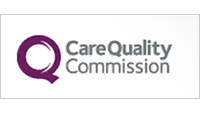Online Travel Service
Going on holiday or travelling can be very exciting and by taking just a few practical steps before leaving home you can avoid illness during your trip. By venturing further afield we increase our risk of coming across diseases to which we have no natural immunity. Different food, water, hygiene standards and climate can leave us more susceptible to illness, and it is not always possible to rely on easy access to medical care whilst abroad.
PharmacyDoctor can provide prescription medications for malaria tablets and treatment against traveller�s diarrhoea prior to going abroad. We can also provide treatment against jet lag ensuring your holiday gets off to the best start and your return run smoothly too.
Have you forgotten to get your Malaria tablets from the doctor?
Pharma.myonlinedoctor can provide:
- An urgent prescription service for Malaria tablets
- Prescriptions for Malarone, Mefloquine, Doxycycline
- Same day dispatch Monday-Friday
- Shipping by guaranteed UK next business day delivery
Protect yourself!
If you are thinking of travelling to a developing country you should make your medical arrangements with a medical professional at least 6-8 weeks before your scheduled departure, and make sure you are up-to-date with all the jabs required for your particular destination. You should leave sufficient time before your departure date to start any malaria prophylaxis which may be advised for travel.
Remember that prevention is always better than cure when it comes to Malaria!
Traveller's Diarrhoea Antibiotics
Traveller's diarrhoea is the single most common medical complaint when holidaying away from home. In some countries it is an inevitable part of your travels and just becomes a question of when and how long for?
Traveller�s diarrhoea is characterised by an increased frequency and urgency of very watery bowel movements, and is often accompanied by abdominal cramps, nausea, sweating and fever, bloating, vomiting, and general malaise.
Pharma.myonlinedoctor prescribes Ciproflaxcin to remedy traveller's diarrhoea. Ciproflaxcin works by killing bacteria by interfering with the enzymes required for bacteria reproduction. By stopping the spread of bacteria the body�s own immune system can work to contain and combat infection.
Let your doctor know if you are allergic to penicillin, so they can prescribe appropriate alternatives.
Useful antibiotics for travellers
Taking a basic set of antibiotics whilst you travel can help cover a broad range of illnesses that could potentially to ruin your trip. These treatments could prove extremely valuable if you are travelling to a country where there is limited access to health care or where there is a high risk of buying fake medications.
Other useful antibiotics to take on your travels include:
- A broad spectrum antibiotic used for chest, ear, tooth, bowel, urine infections
- A broad spectrum antibiotic used in lung, bowel, urine and some sexually transmitted infections
- Antibiotic drops for ear and eye infections
- Locally applied antibiotics for skin infections
Why does Jet lag occur?
Jet lag occurs when your body clock is out of sync and this occurs when you travel across several time zones. Where the difference in time between your place of origin and your destination is considerable you are very likely to experience the symptoms of jet lag. Some people find it easy to adjust to the time difference, and after a few days find their natural rhythm is back to normal, whereas other people struggle to go back to their regular sleep cycle.
Common symptoms of the temporary disorder include:
- Fatigue
- Tiredness
- Insomnia
- Irritability
- Headache
- Appetite loss
- Digestive problems such as constipation or diarrhoea
As more and more of us travel to far flung destinations for business or on holiday there is a greater demand for a treatments like Melatonin which help travellers fight the symptoms of jet lag.
Travel illness
By venturing further afield we increase our risk of coming across diseases to which we have no natural immunity. Different food, water, hygiene standards and climate can leave us more susceptible to illness, and it is not always possible to rely on easy access to medical care whilst abroad.
Thinking of travelling abroad?
For some people heaven is lying on an exotic white sanded beach in a 30 degree heat, and for others it is taking in the thrilling adventure of a trek up the Andies. Whatever you will be up to on your holiday the last thing anyone wants is to have it ruined by jet lag or serious illness.
Be it business or pleasure, do not leave home without:
- Fully comprehensive private travel / medical insurance
- Any necessary vaccinations
- The correct Malaria prophylaxis
- Antibiotics for traveller's diarrhoea
- Insect repellent containing DEET
- Treatment against Jet lag
- A basic First Aid kit
Take precautions, take Malaria tablets
Malaria is caused by a single cell parasite. This parasite is easily transmitted from an infected person to a healthy person by a mosquito bite. Malaria is a serious illness which is common in continents such as Central and South America, Africa and Asia. If left untreated Malaria can cause death, however you can take measures to prevent full infection through prophylaxis, using an appropriate insect repellent and sleeping under a mosquito net.
Your doctor should advise you on which anti-malaria treatments are suitable for your intended area of travel and will provide appropriate dosing instructions depending on the type of treatment recommended and the length of time you are spending in the malaria risk zone.
Pregnant women and young children are not advised to visit Malaria-prone areas unless it is absolutely necessary. Extra-precautions should be taken by pregnant women and by those travelling with children to avoid being bitten by mosquitoes.
Mosquitoes tend to bite at dusk and during the night, so try to wear long sleeved tops and trousers. They are attracted to dark coloured surfaces so wear light coloured clothing. Mosquito repellent sprays and creams which contain diethyl toluamide (DEET) are highly effective and recommended for bite prevention.
If you feel ill while you're away and have fever like symptoms seek medical help. If you get feel ill up to 8 weeks after returning from an area affected by Malaria visit your GP, even if you have correctly completed your course of anti-malaria medications. Tell your doctor where you have been so they can give you immediate medical attention.
Remember that prevention is always better than cure when it comes to Malaria!





